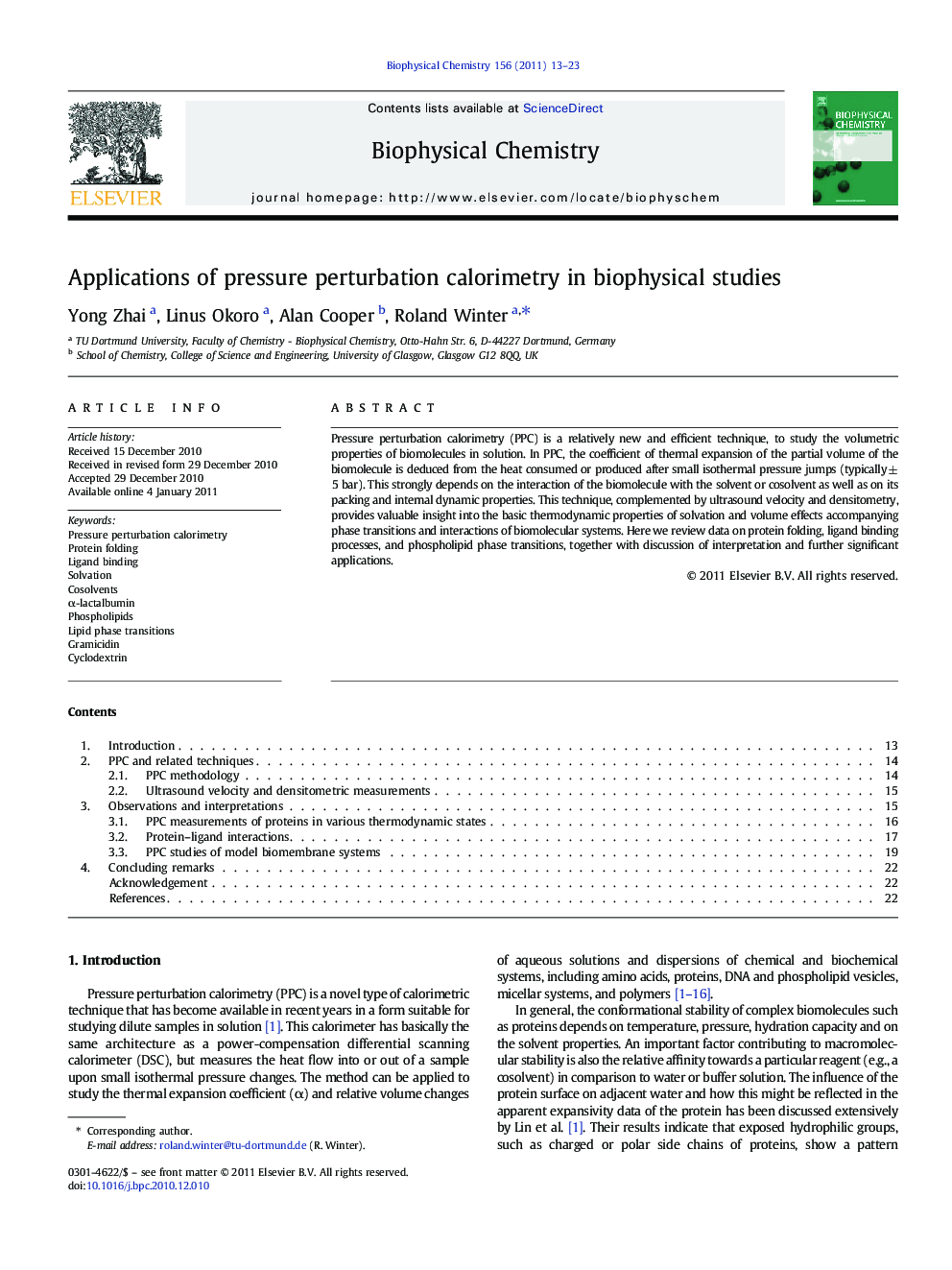| کد مقاله | کد نشریه | سال انتشار | مقاله انگلیسی | نسخه تمام متن |
|---|---|---|---|---|
| 5371498 | 1388824 | 2011 | 11 صفحه PDF | دانلود رایگان |

Pressure perturbation calorimetry (PPC) is a relatively new and efficient technique, to study the volumetric properties of biomolecules in solution. In PPC, the coefficient of thermal expansion of the partial volume of the biomolecule is deduced from the heat consumed or produced after small isothermal pressure jumps (typically ± 5 bar). This strongly depends on the interaction of the biomolecule with the solvent or cosolvent as well as on its packing and internal dynamic properties. This technique, complemented by ultrasound velocity and densitometry, provides valuable insight into the basic thermodynamic properties of solvation and volume effects accompanying phase transitions and interactions of biomolecular systems. Here we review data on protein folding, ligand binding processes, and phospholipid phase transitions, together with discussion of interpretation and further significant applications.
Graphical AbstractResearch Highlights⺠We present a review on Pressure Perturbation Calorimetry (PPC), a relatively new and efficient technique to study the volumetric properties of biomolecules in solution. ⺠This technique provides valuable insight into basic thermodynamic properties of solvation and volume effects accompanying phase transitions and interactions of biomolecular systems. ⺠We review data on protein folding, ligand binding processes, and lipid phase transitions, and discuss the interpretation of PPC data.
Journal: Biophysical Chemistry - Volume 156, Issue 1, June 2011, Pages 13-23